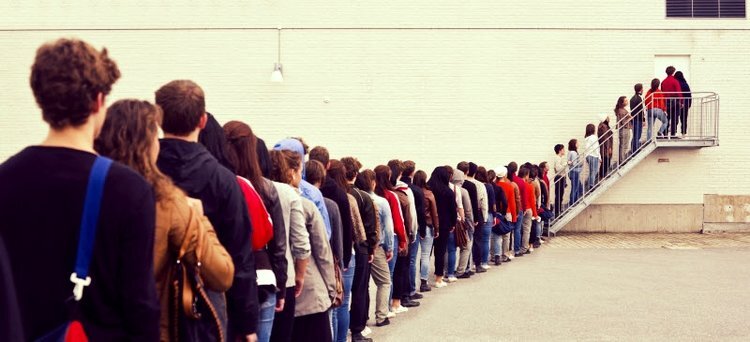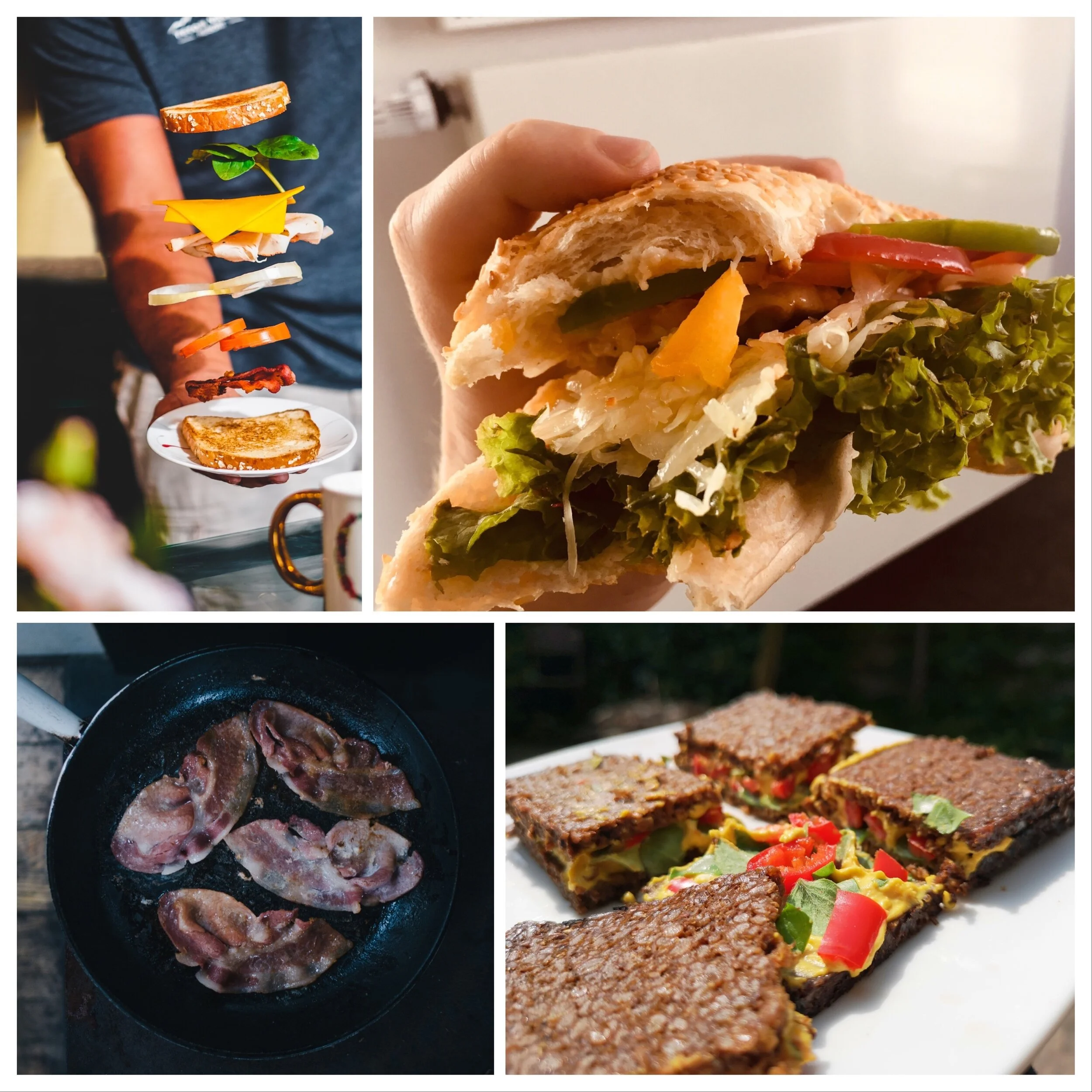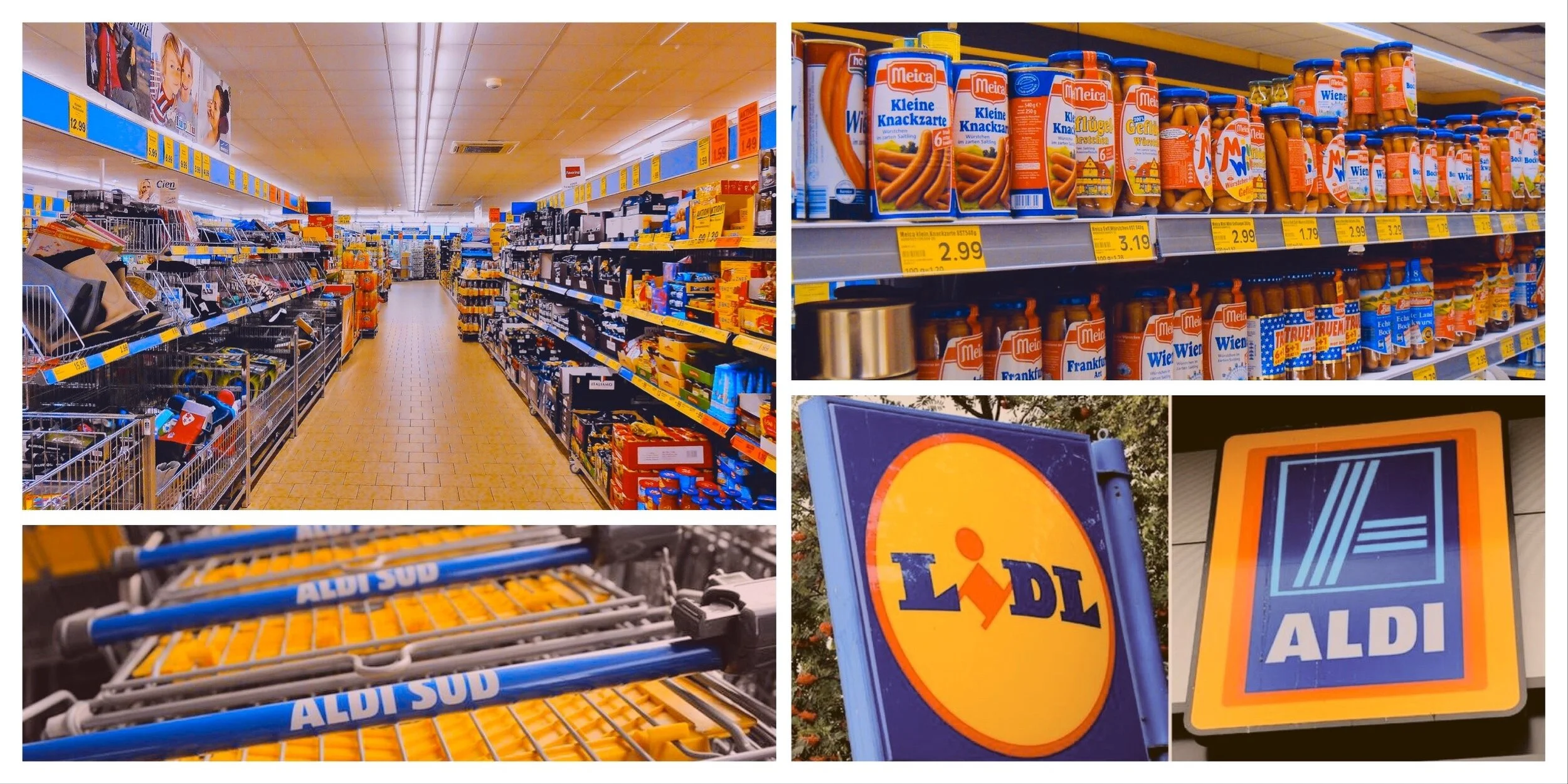Form a Disorderly Queue
Read any book on German culture and it will discuss the importance of time keeping. It’s one of the most common and probably accurate stereotypes about Germany. Fashionably late isn’t really a thing, nor is getting stuck in traffic a viable excuse for joining a meeting late. People’s time is to be respected and should you ever find yourself running behind schedule, few Germans will be sympathetic. More than once I’ve been advised to organise my life better after arriving at an appointment two or three minutes later than expected. Lateness is anxiety inducing in Germans and there is a bottomless reserve of displeasure should someone be responsible for making a German late. This national obsession with time creates a larger sense that Germany is a highly organised society, and in a lot of ways it is. However, German organisation is not uniform, in one particular area, Germany prefers total chaos: the queue.
In most areas of life, personal distance is respected. Distance manifests linguistically in the German polite form ‘Sie’ and physically in the general respect of distance between two people in an office setting, for instance. Yet, queues seem to be the exception to the rule, German queues are a full contact sport. Standing close enough to touch the person in front was the accepted norm here up until the pandemic, and despite the restrictions, maintaining distance is still an issue. Apparently, if you can’t feel the warm breath of the person behind on the nape of your neck, you’re not doing it right. Sometimes I’m unsure if I’m waiting for the next cashier to become available or being coerced into an involuntary Human Centipede. Fear of coming into skin on skin contact with a stranger is one thing, but Germans also tend to queue jockey, which is to say jump from queue to queue in the hope that one will move faster than the other. There is no more chaotic a scene than the moment a cashier opens a new checkout on a busy Friday afternoon. I have seen pleasant old ladies move at lighting speed, all elbows and fake knees, snarling with indignation at the idea that someone might get their groceries a second before them.
Queue hopping in a shop is one thing, but any sense of German organisation disintegrates the moment anyone finds themselves in a traffic jam. Most of the traffic I experience daily has less to do with car crashes or road works and everything to do with random commuters hopping between lanes at the slightest hint they might be in the slowest queue.
If further proof were needed of the havoc that a German queue can inspire, catch a flight at any airport in Germany. Security queues are generally well organised, but I suspect only because they are patrolled by police officers carrying firearms. At the departure gate, it’s a totally different story. Every announcement is met with bird like head twitches, with most people waiting for the opportunity to elbow drop a toddler to get on the plane 3.5 seconds faster. Even the introduction of staggered boarding seems to have had little impact. Once a queue has formed, don’t be surprised to find sub-queues appearing at all angles, to the bafflement of non-Germans.
It’s no surprise that I’m confused by German queues, I’m British, and in Britain queues are ritual, performance art and like timekeeping for Germans, a national obsession. Up and down the country, the British are happily forming queues, even when they haven’t been told to. It’s surely a genetic trait, an in-built knowledge that the best way to wait for anything is in a single file line. We queue for toilets, for clubs and for deep fried chicken. Some countries require signage such as “Queue here” to guide patrons, but the British hive-mind knows where and when a queue is required and acts accordingly.
Photo by Oladimeji Ajegbile from Pexels
The British have mastered linear queuing but have also expanded their repertoire to include queuing two abreast, tandem queuing and the ever-elusive serpentine. To fully grasp the complexity of this intrinsic British art form, go to any pub. Here you will find the highest achievement of British queue culture: The Flush Queue. This involves a queue forming flush against the bar in a horizontal line. This might appear to be organised chaos, given that it’s not always clear who is first. Of course, the British know inherently who is first and will happily tell the barman should they accidentally attempt to serve someone out of queue order.
Perhaps the difficulty non-Germans have understanding German queue etiquette stems from the belief that timekeeping and organisation are one and the same thing. In Germany, timekeeping is an example of a person being organised, but it is also acknowledged that of the two, timekeeping is far more important. Saving time, whether out of a sense of efficiency or simple impatience, is more important than the social norms of organisation. Therefore, queuing is acceptable, so long as it isn’t making anyone late, however, it is perfectly acceptable to ignore queue organisation, if it means saving five minutes. The problem, of course, is that everyone here seems to be trying to save five minutes of their precious time.
Germans might not observe queues with the quiet solemnity of the British, but like anything in Germany, there is a process. I don’t enjoy the German queue but I have grown to understand its peculiar benefits. How often in life are we afforded the opportunity body check a stranger while buying socks at C&A on a Tuesday afternoon? Never, that’s how often. The fact that it might also save me a few precious minutes waiting in line is a bonus. I respect the great cultural gift of the queue my British ancestors handed down to me, but they also gave me immense social awkwardness, meaning I always end up offering up my space in the queue out of a misguided sense of politeness. Perhaps the sensible thing to do is to embrace German queuing, order a mouth guard and shin-pads, and just get involved. To the victor go the spoils, even if the spoils in question are 3 minutes saved waiting at a supermarket checkout.
Photo Credit
Photo by Oladimeji Ajegbile from Pexels
Photo by Picography via Pexels.com
Photo by Wolfgang Hasselmann on Upsplash
Photo by Adrien Delforge on Unsplash








